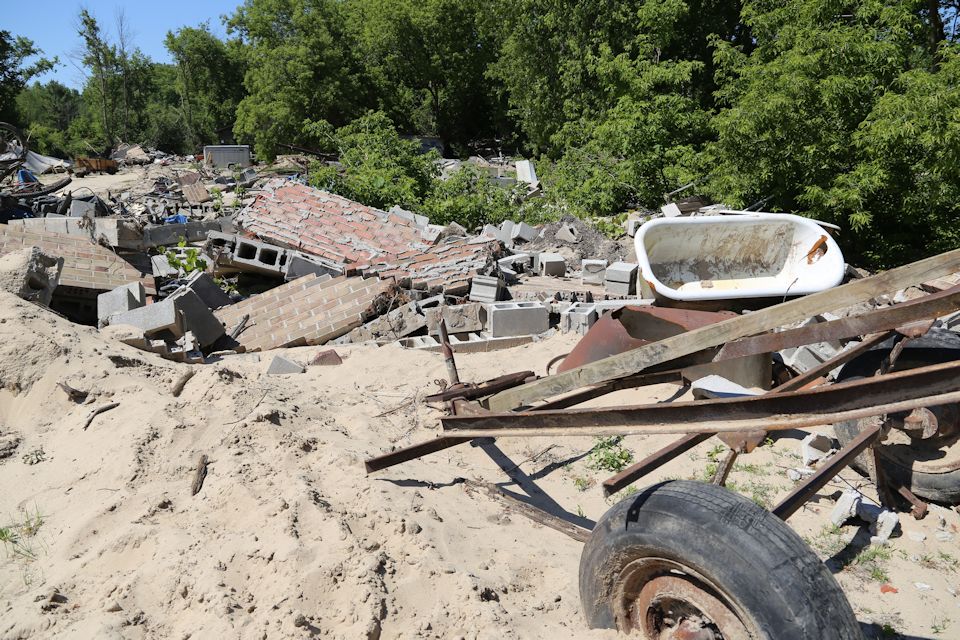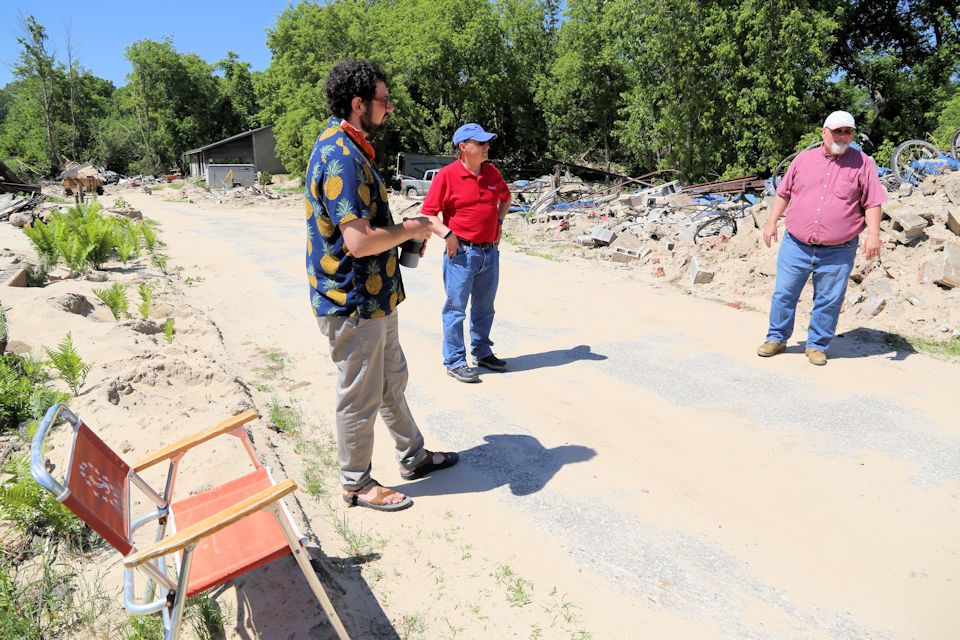Case Managers will be trained by UMCOR in July to assist in the Long Term Recovery Group plans for helping individuals and families achieve a new normal from last month's flooding.
KAY DEMOSS
Senior Content Editor
June 23, 2020 – The Disaster Response Ministry Team of The Michigan Conference remains at work addressing the current and future needs of hundreds of flood-struck residents in mid-Michigan. United Methodists have been on the scene for five weeks in Sanford, Midland, Freeland, and points between caring for householders and the volunteers supporting clean-up.
Nancy Money, Coordinator of Disaster Recovery Ministries, reports that Case Managers will be prepared for work by United Methodist Committee on Relief trainer Christy Smith on July 20. The hope is to employ 4-5 Case Managers.
The Midland Area Community Foundation has provided a grant to hire two persons. Conversations are also underway with the Saginaw Community Foundation for support of a Case Worker in Saginaw. Application has been made to UMCOR for a $100,000 Recovery Grant to fund two additional Case Managers. That in addition to the $10,000 Emergency Grant already received from UMCOR.
The Federal Emergency Management Agency (FEMA) estimates that 907 households suffered significant flood damage on May 19. Hundreds are left homeless since that time. These residents lived in a five-county region, over half in Midland County.
The Red Cross continues to work with clients currently in shelters to broaden their awareness of resources available for their recovery. A virtual multi-agency resource center (VMARC) takes place this Thursday to address their unmet needs. The Red Cross reports that hotels house around 120 persons at this time.

Long Term Recovery Groups (LTRGs) are up and running in Gladwin, Midland, and Saginaw. LTRGs are supported by the National Volunteer Groups Active in Disasters. FEMA, UMCOR, and the Michigan Conference are active partners. Nancy Money and Dan O’Malley, Michigan Conference Disaster Response Coordinator, are on the leadership team of the LTRG in all three counties.
The goal of the LTRGs is to “unite recovery resources with community needs to ensure that even the most vulnerable in the community recover from disaster.” It is important to emphasize that recovery is about more than buildings. Guidelines share by O’Malley state, “A successful recovery is also about individuals and families being able to rebound from their losses, and sustain their physical, social-economic and spiritual wellbeing.”
The Michigan Conference’s role in the LTRG plan centers on Disaster Case Management, as previously noted. Disaster Case Managers are skilled helpers who partner with disaster-affected individuals and families to plan and achieve realistic goals for recovery. The Case Manager is the primary point of contact, coordinating services and resources needed to reestablish normalcy.
Bishop David Bard recently visited the area along with Money and O’Malley. The bishop said, “I know you have been praying for all those affected. I know you will want to reach out to help, and right now, one of the best ways to do so is by donating to the Michigan Area Disaster Response Fund.” Gifts may be made online here, or checks may be sent to the Michigan Conference at 1161 East Clark Road, Suite 212, DeWitt MI 48820. It is essential to include this exact language in the memo: #4407 Michigan Area Disaster Response.
The Michigan Conference is engaged in preparedness for the long haul, mustering supplies and volunteer labor that will be needed to support the recovery phase. Repairs and rebuilds are expected to take 18-24 months to complete. Those who wish to partner with the work ahead are asked to fill out the Long Term Recovery Survey. Updates –calls for labor, materials, hosting of volunteers, etc. — will be communicated to individuals based on their responses. Click here to participate in the survey.
Last Updated on November 1, 2023

